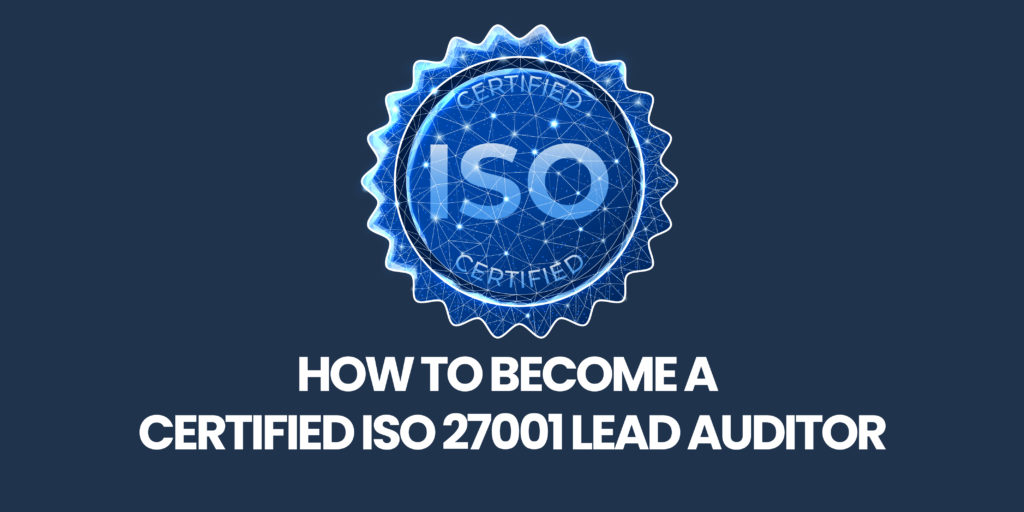
In today’s business world, ISO 27001 certification is an important ISO standard for companies regardless of their size and industry. This will provide a framework for how they can set up and implement the information security management system within an organization. Additionally, it makes sure that the safety and protection of a company’s data is maintained. Becoming an ISO 27001 lead auditor certification is becoming an important job. Furthermore, a lead auditor is a person that is responsible for keeping a check and balance. They will make sure whether the employees are obeying the rules and quality standards or not.
Furthermore, an ISO 27001 lead auditor is also responsible for planning and conducting audits within the organization. They have to spot any problems in the Information security system. At last, reporting it to the relevant bodies and conducting follow-ups to make sure a similar problem do not arise again. The ISO 27001 lead auditor certification is an important job. This will help ensure data protection, compliance, and risk management. Conducting regular audits helps protect against new threats and security risks.
In this article, we will give a step-by-step guide to how to become a certified ISO 27001 lead auditor.
Understanding of ISO 27001
First and foremost, the person should have a hold on the basic rules and fundamentals of ISO 27001 standards. Having a complete understanding of risk management principles, ISMS, auditing process, etc. is essential for an ISO 27001 lead auditor. Additionally, there are also training programs and self-study courses that the auditor can take to learn all relevant information related to ISO 27001 standards. It is important to have basic knowledge and understanding of ISO 27001 standard principles.
Training
Once the lead auditor have a complete understanding of the basic principles and standards, then they should enroll in a training program or a relevant study course. Courses and trainings will help them to understand about case studies and practical examples. This will help them to apply the knowledge in real-world scenarios. A few recommended courses for an ISO 27001 standard are the IEC 27001 Foundation Course, IEC 27001 Lead Implementer Course, and IEC 27001 Lead Auditor Course. The foundation course gives a comprehensive introduction and explanation of the 27001 standard. Anyone who wants to completely understand ISMS can take up this course. The lead implementer course is important if a lead auditor wishes to take up the leadership role in the ISMS implementation. At last, the lead auditor course will help you to conduct audits with relevance to ISO 27001 standards.
Understand the auditing process
A person opting for a lead auditor job must fully understand the auditing process. The auditing process generally includes 3 main steps. The first step is preparation. If you want effective results, understanding the auditing process from scratch is necessary. Having a basic understanding of how auditing is conducted. Additionally, they should review the documentation. For instance, risk management guidelines, security guidelines, control management etc. Next step is to conduct the audit. This includes conducting interviews, inspections, verifications, sampling, and at last testing. At the final stage, the lead auditor will report and document the results they found. And perform regular audits to ensure effectiveness.
Take the certification exam
ISO 27001 lead auditing exam consists of 3 types of sections. Multiple choice questions, case study questions, and practical application questions. The multiple-choice section will test the person’s bookish knowledge and basic understanding of the fundamental concepts. The case study questions will focus on the person’s analytical and critical thinking skills. It will allow the person to put themselves in that situation and analyze what they would do if put in that situation. Lastly, the practical application section will focus on the person’s ability to understand how to practically lead and conduct an auditing. The person should prepare accordingly and pass the certification exam to become an ISO 27001 lead auditor certification.
Gain practical experience
Once the person passes the certification exam, they will legally be eligible to work as a lead auditor. After which, to gain some practical and hands-on experience, they could work as a freelancer or associate themselves with an organization providing ISO certifications. This will build their profile and add to their CV as a lead auditor. This will help the person to develop and polish their auditing skills. The lead auditor can have an expertise in ISO 27001 lead auditor certification.
Maintain your certification
ISO standards is an ongoing process as the International Organization for Standardization regularly updates the standards. With new and emerging data and problems arising, ISO updates them accordingly. So an ISO 27001 lead auditor will need to stay up-to-date with the latest changes. Similarly, a lead auditor will also need to maintain their certification. Moreover, attending seminars or conferences related to these standards is also a way to maintain the certification. Moreover, a lead auditor could apply for recertification to update their certificate.
The article outlined a comprehensive step-by-step guide for anyone interested in having an ISO 27001 lead auditor certification. If a firm is looking to get ISO 27001 certification, we have consultants with this expertise. To learn more about ISO 27001, visit our website for more details.
